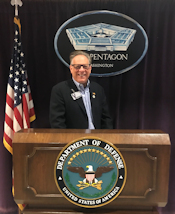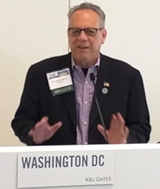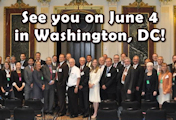NNI Publishes Supplement to the President’s 2023 Budget Request
Posted on February 13th, 2023 | No Comments »
The NanoBusiness Commercialization Association (NanoBCA) would like to share the following announcement.

Lynn L. Bergeson, Managing Partner, Bergeson & Campbell, P.C and Carla N. Hutton, Regulatory Analyst, Bergeson & Campbell, P.C have provided the highlights of the 84-page NNI Supplement to the President’s 2023 Budget Request.

On February 3, 2023, the National Nanotechnology Initiative (NNI) announced that it published a supplement to President Biden’s 2023 budget request. NNI notes that the supplement serves as its annual report, called for under the provisions of the 21st Century Nanotechnology Research and Development Act, and also addresses the requirement for Department of Defense (DOD) reporting on its nanotechnology investments. The NNI budget represents the sum of the nanotechnology-related investments allocated by each of the participating agencies. Each agency determines its budget for nanotechnology research and development (R&D) in coordination with the Office of Management and Budget (OMB), the White House Office of Science and Technology Policy (OSTP), and Congress. According to the supplement, the NNI agencies collaborate closely — facilitated through the Nanoscale Science, Engineering, and Technology (NSET) Subcommittee of the National Science and Technology Council (NSTC); its working group, communities of interest, coordinators, and strategic liaisons; and the National Nanotechnology Coordination Office (NNCO) — to create an integrated R&D program that leverages and amplifies resources and efforts to advance NNI goals and meet individual agency mission needs and objectives. NNI agencies support significant investments in research infrastructure, developing new research tools, and making these tools available through user facilities. The NNI also supports science, technology, engineering, and mathematics (STEM) education to prepare the workforce of the future.
The supplement states that the President’s 2023 budget supports nanoscale science, engineering, and technology R&D at 11 agencies. The five federal organizations with the largest proposed 2023 investments (representing 96 percent of the NNI total) are:
- Department of Health and Human Services (HHS)/National Institutes of Health (NIH) (nanotechnology-based biomedical research at the intersection of life and physical sciences);
- National Science Foundation (NSF) (fundamental research and education across all disciplines of science and engineering);
- Department of Energy (DOE) (fundamental and applied research providing a basis for new and improved energy technologies);
- DOD (science and engineering research advancing defense and dual-use capabilities); and
- Department of Commerce (DOC)/National Institute of Standards and Technology (NIST) (fundamental research and development of measurement and fabrication tools, analytical methodologies, metrology, and standards for nanotechnology).
The supplement states that the proposed 2023 NNI investments “are synergistic with efforts to renew U.S. leadership in the semiconductor and microelectronics industries funded and authorized under” the Creating Helpful Incentives to Produce Semiconductors (CHIPS) and Science Act of 2022. Foundational nanotechnology research and nanoelectronic devices and systems will provide leapfrog capabilities in microelectronics. Research centers and user facilities supported by the NNI participating agencies DOE, DOD, NSF, and NIST include an extensive network of cleanrooms and other nanofabrication and characterization capabilities that are a strong foundation for the additional microelectronics infrastructure to be developed with CHIPS Act funding. NSF will build on its existing nanoscience and engineering education programs to develop the semiconductor workforce and education activities funded under the CHIPS Act.
——————————————–
In addition to recommending events that are relevant to our nanotechnology community, NanoBCA offers our members the opportunity to participate in our monthly webinars. Our monthly webinars address topics involving the relationship between the science of nanotechnology and Environmental, Health & Safety (EHS), US Legislation, Education, Finance, Manufacturing and Foreign Policy.
Our next NanoBCA webinar is scheduled for Wednesday, February 22, 2023 at 2PM ET.
ACADEMIC/YOUNG PROFESSIONAL MEMBERSHIP $100
One of the benefits of NanoBCA membership is access to our previous webinars with America’s leading scientists and engineers.
We look forward to continuing our legacy relationships and welcoming a new generation of NanoBCA members.
——————————————–
We would like to thank Lynn L. Bergeson & Carla N. Hutton for providing our nanotechnology community with this document summarizing the NNI supplement.




